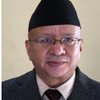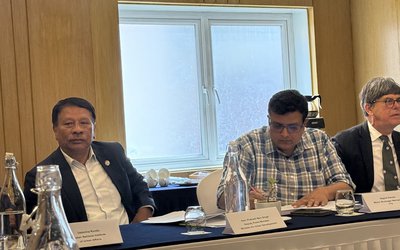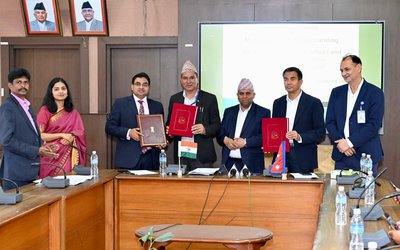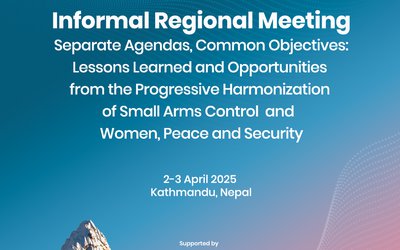Prime Minister KP Sharma Oli is scheduled to go to America to participate in the United Nations General Assembly.The United Nations General Assembly is being held in New York from September 10 to 28.Similarly, "Summit of the Future" is scheduled to be held on 22-23 September.It has become public knowledge that Prime Minister Oli will address the United Nations General Assembly and the "Summit of the Future" on behalf of Nepal.
It has been a trend to participate in the United Nations General Assembly by the head of state and head of government leading the Nepali delegation.According to this tradition, Nepal's Prime Minister and Head of Government KP Oliis participating in the 79th General Assembly of the United Nations.
Even before this, Oli addressed the United Nations General Assembly in October 2075 as the Prime Minister.This is also the first foreign visit of Oli, who was the Prime Minister last time in 30thAsadh.The tradition of visiting India for the first time in the past is now being attended by international organizations.
Nepal has given high priority to achieve the SustianableDevelopment Goal 2030.For this, Nepal has advanced the Sustainable Goals in an integrated manner in its plans, policies and programs.Nepal will highlight that we are committed to achieving the 2030 Sustainable Development Goal and that Nepal is seriously on the right track to achieve it. It is also necessary to convey the message that Nepal is determined to end poverty and eliminate inequality by the year 2030, and that it is committed to a plan to leave no one behind in accordance with this goal.
Biodiversity and Nepal
By showing the achievements, Nepal has achieved so far in biodiversity conservation, the conference can be fruitful to ask for more resources from the international community.It is imperative to check pollution, threatened biodiversity, deforestation in the Himalayas.
The causes of environmental protection are overpopulation, deforestation, pollution, lack of awareness about the effects of environmental degradation, lack of effective nature conservation policies, and prevention of misuse of natural resources.
Local communities in Nepal must be able to cope with the diverse impacts of climate change, from melting glaciers and the emergence of new diseases in the mountains to floods and high temperatures in the lowlands.In this context, it is understood that the 29th Conference of the Parties to the United Nations Framework Convention on Climate Change (UNFCCC) (COP-29) will focus more on the issue of 'climate finance'.
COP-29 will be held in Baku, Azerbaijan on November 11-22.This conference is also called 'Finance Coop' as the topics of 'Climate Finance' and 'Carbon Credit' are on the primary list of discussion.
As climate risks challenge lives, livelihoods and economies, Nepal cannot afford to wait for international climate finance.In the meantime, Nepal must increasingly mobilize its public finances and accelerate climate-resilient and private investment.
It seems that this conference will be important from the point of view of climate finance, as the matter of 'climate finance' and 'carbon credit' will be finalized in COP-29 and the source of funds will also be determined.
Underdeveloped countries and Nepal
The 46 Least Developed Countries (LDCs) contain about 14% of the world's population.They are among the poorest and most vulnerable economies in the world.They account for only 1.3% of the world's GDP, receive only 1.4% of total foreign direct investment and trade under 1% of world trade exports.
A new strategy seems to be needed to enable the rapid upgrading of LDCs.Equally important is how LDCs achieve stardom. Increase in investment capacity in LDCs through financial and technical assistance for investment project preparation and contractual agreements, investment dispute resolution, investment promotion facilities and related assistance are the need of hour .
It is also necessary to make a just, balanced and sustainable low-carbon transition in LDCs by increasing international cooperation that considers the long-term development needs of these countries.
Least Developed Countries, Sustainable Development Goals by 2030:
The world's least developed countries are in a race against time to meet the Sustainable Development Goals by 2030.In the remaining years, these 46 countries must launch new global partnerships to ensure they benefit from social, economic and environmental development.
Bold investments in health, education and social security systems are needed – all the resources needed to fully implement Agenda 2030 and the Sustainable Development Goals are expected to be available.The world today is facing the crisis of geopolitical divisions, inequality and climate emergency.
This global development compact should be implemented in conjunction with the 2030 Agenda for Sustainable Development and the Paris Agreement.Nepal should prioritize the structural transformation of the Nepali economy by building productive capacity based on green recovery through investment in areas of competitive advantage.
Nepal’s graduation to developing country: Challenges Ahead
It is currently preparing for LDC upgradation by 2026.It can be a strange feeling to be recommended for strata without meeting our income criteria. Graduation is a long-standing aspiration of Nepal.Therefore, national efforts are being made to ensure that it is smooth, sustainable and irreversible.
Nepal should also call for strong support from its development partners to complement Nepal's national efforts. As we prepare to upgrade from the status of an underdeveloped nation to a developing nation, it is time to rethink how much homework we need to do to walk the path of prosperity beyond graduation.
Even beyond graduation, Nepal should invest more than double its GDP in various fields to compete in the world market.The government alone cannot raise the money needed to lay the groundwork to prepare all regions for the shock of transitioning from LDC status.And on top of that, LDC is not the end of the story.
Stratification has positive and negative effects on the country's economy.A comprehensive assessment of both positive and negative impacts should inform all stakeholders in the economy.
After about 55 years, Nepal is going to be upgraded from the list of least developed countries to developing countries.The 76th General Assembly of the United Nations approved the proposal to upgrade from the list of least developed countries to developing countries.
Since 1971, Nepal was in the list of least developed countries of the United Nations. In addition, the economy of some countries in the world is currently in recession.There are signs of recession in Nepal, an underdeveloped country.
It would not be an exaggeration to say that consumption has decreased due to high inflation this year due to bank interest rates and other reasons.
Like the United Nations, Nepal advocates and respects sovereignty, geographical integrity, political independence and non-interference in the internal affairs of others.A staunch follower of the United Nations, non-alignment and SAARC,BIMSTEC, BBIN, Nepal adheres to the policy of positive neutrality, regards the United Nations as the guardian of the freedom of small nations and hopes to move forward with the same spirit.
Major agenda
The main agenda is to minimize climate change and its impact on people's lives.It is recalled that in the last year’s visit of the Secretary General of the United Nations to Nepal, the issues of climate change in Nepal, Nepal's peace process, TRC Act and the Sustainable Development Goals of the United Nations were discussed. Also, apart from climate change and peace process, Nepal's contribution to UN peacekeeping and the country's involvement in other global issues are also noteworthy. Reform of the United Nations
Nepal agrees that the reform of the United Nations is a matter of interest to all member states and the purpose of the reform is to strengthen the role of the United Nations and enhance its efficiency.In the post-Cold War era, the world situation continues to undergo profound changes, gradually evolving towards a multi-party world that reinforces the centrality of the UN Charter – peace and development in broad freedom.
Therefore, the global cause is to make the United Nations a better equipped, institutionally and economically more vibrant world organization to face the challenges that will develop in this century.
It is true that the UN still has a long way to go on reform, and the Third World should see the proposals as a good start. The United Nations is the only representative world forum to discuss and resolve issues of global concern.
For the past six decades, Nepal's role in various forums under the United Nations has helped to increase its identity and reputation around the world.
Nepal joined the United Nations on December 14, 1956.For the first time, Nepal participated in the United Nations Summit and International Conference on Human Environment held in Stockholm, Sweden.Since then, Nepal has participated very actively in various United Nations summits and international conferences organized under the leadership of world bodies.
Nepal reiterated that developing countries and especially least developed countries have experienced a major decline in the resources of United Nations operational activities for development.
LDCs need more support from these agencies as most LDCs have noted far-reaching reforms.In the absence of foreign direct investment flows, now available in many developing countries, LDCs lack physical infrastructure and physical resources.
Landlocked aspect of Nepal’s development
The situation is exacerbated in landlocked developing countries by the high costs of producing and transporting their exportable goods and the difficulty of maintaining the tight delivery schedules demanded by world markets.Lacking direct access to the sea and a significant market base within their borders, these landlocked countries cannot offer any comparative advantage necessary to attract foreign direct investment.
In terms of additional financial resources and transfer of appropriate technology, Nepal considers concrete measures to address built-in handicaps to be the minimum requirement. The past seven decades have seen the United Nations strive to fulfill its charter objectives, peace and prosperity - the highest aspirations of mankind.
Conflict, extreme brutality, poverty, hunger, overpopulation and environmental problems continue to grow. Role of the UN
The role of the United Nations is not only as a peace keeper but also as a preventer of conflict, the nations of the world seem to be putting more emphasis on their organization to help them solve their problems and move them forward. It is imperative to check pollution, endangered biodiversity, deforestation in the Himalayas.
The causes of environmental protection are overpopulation, deforestation, pollution, lack of awareness about the effects of environmental degradation, lack of effective nature conservation policies, and preventing the abuse of natural resources.
A cursory review of history shows that until a few years ago, forests were at the center of environmental discussions in Nepal. The government itself used to aggressively promote the slogan 'Green forest: Nepal's wealth'.'Plant trees, save forests' was written almost everywhere.
However, in the last few years, climate change has changed that place. According to the opinion of some experts, the main reason behind this is probably the wider impact of climate change, that is, no aspect of Nepalese human life can be untouched by climate change.
In this situation, it was not only positive but an absolute necessity that the issue of climate change was discussed everywhere. However, the problem came when other environmental issues besides climate were overshadowed. The slogan 'Green forest: Nepal's wealth' was real.Nepal's wealth is its natural resources, its biological diversity.
After about 55 years, Nepal is going to be upgraded from the list of least developed countries to developing countries.The 76th General Assembly of the United Nations approved the proposal to upgrade from the list of least developed countries to developing countries.Since 1971, Nepal was in the list of least developed countries of the United Nations.
Since the Indian Prime Minister will not participate in the United Nations General Assembly that started in New York, there is little chance of meeting with the Prime Minister of Nepal and Modi. However, Indian Prime Minister Modi is participating in the 'Summit of the Future' organized by the United Nations in New York on September 22 and 23.
Prime Minister Oli is scheduled to participate in the 'Summit of the Future' and although there is a possibility that Modi will meet there, the possibility of a meeting between them cannot be ruled out.
- “Kolahalko Kolaj “: A Collection Of Scattered Memories By Prakash Sayami
- Apr 02, 2025
- Nepal-India Trade, Transit And Unauthorized Trade: Some Considerations
- Jan 16, 2025
- PM Oli’s Forthcoming Visit To China: Will The Achievement Be Complete?
- Nov 29, 2024
- Obituary To Dr. Mohan Man Sainju!
- Nov 02, 2024
- Donations To Political Parties: Some Reflections
- Oct 24, 2024















